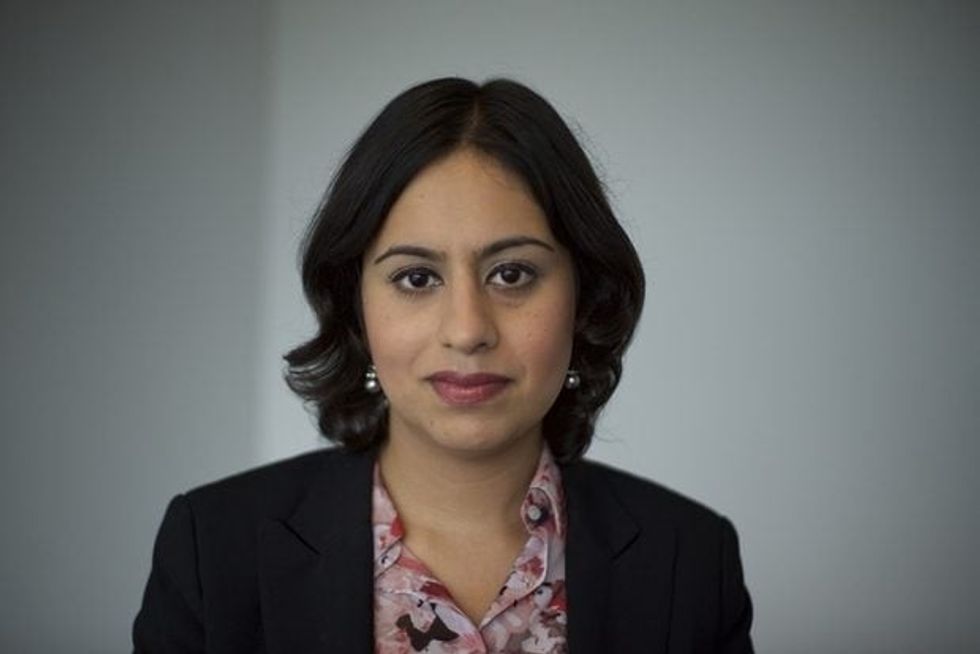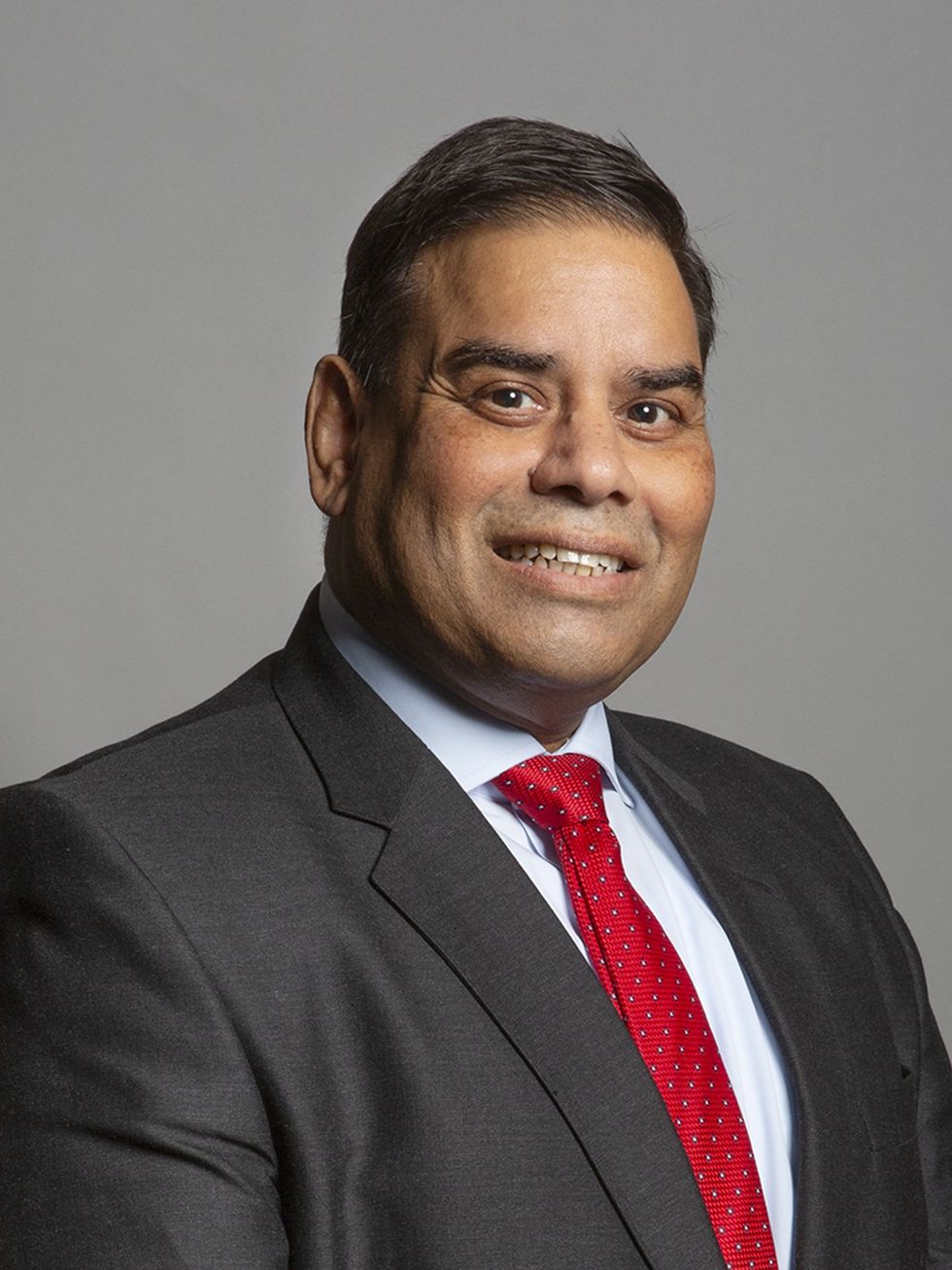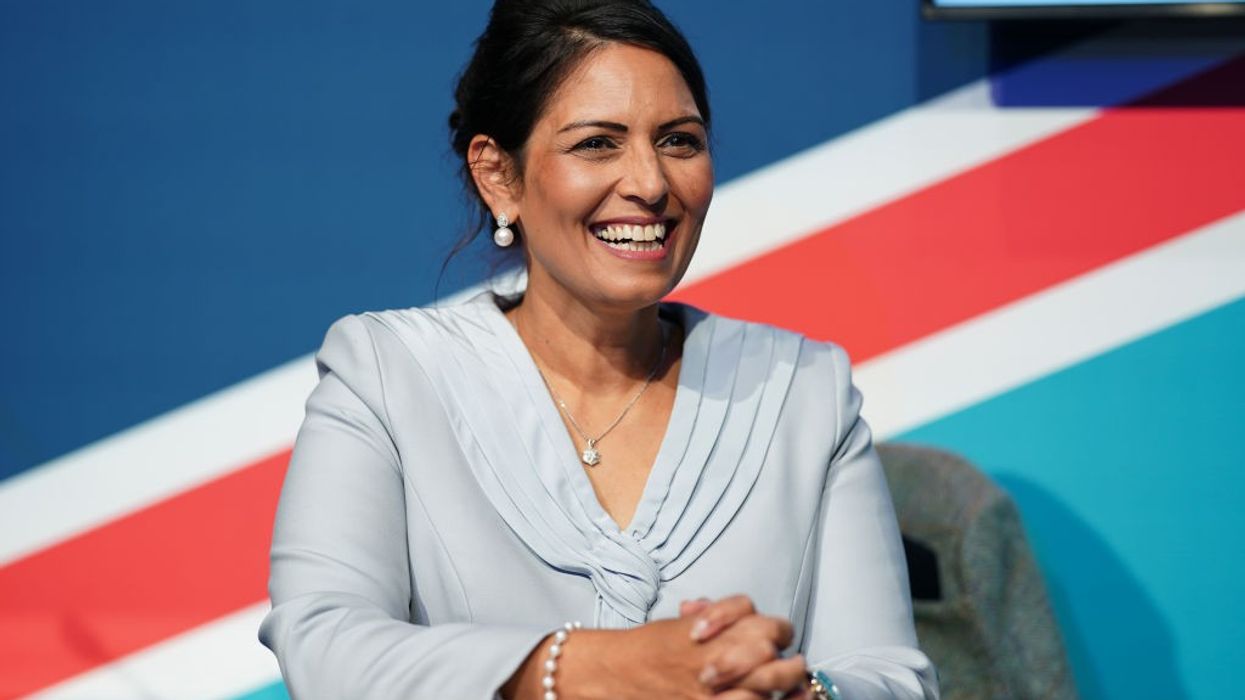FORMER home secretary Priti Patel has reiterated her stance that Shamima Begum remains a “threat to our country” as she hit back at suggestions that the UK has become an “outlier” to its western allies over its stance to not allow the former Daesh member to return to the country.
Begum, 23, who travelled to Syria from London in 2015 to join the terror group, was stripped of her British citizenship in 2019 on national security grounds by then home secretary Sajid Javid.
Last Wednesday (22), the Special Immigration Appeals Commission dismissed her latest appeal against the government’s decision.
Former lead commissioner of the Commission for Countering Extremism, Dame Sara Khan, said the UK was risking “creating the next generation of jihadists” by leaving the likes Begum in refugee and detention camps abroad.

“The reality is that we have to grapple with as a country is that we have become an outlier in contrast to other Western nations. The US has taken back its citizens, we know that Germany, France, and many other European nationals have taken back their citizens,” Khan said during a panel discussion on counter-terrorism hosted by the Policy Exchange in London on Monday (27).
“There is a particular issue to be raised about women and children who are in these squalid camps. One of the concerns now is for those people who are in those camps, particularly the children, we are just ending up creating the next generation of jihadists, and so I don’t think we can just wash our hands off and ignore that situation.”
She added: “If we can bring them back, we can have much greater control over the situation.”
However, Patel, who was also on the Policy Exchange event panel, was robust in her response to Khan, saying the UK’s first responsibility was to protect its citizens.
“We are an outlier, but we are an outlier for good reason, and those reasons include the threat to our own citizens and the threat to our country,” she said.
Patel, who served as home secretary between 2019 and 2022, said she had insight into cases such as Begum’s, adding; “I’ve not just read the files, but actually been involved in operational work around everything to do with individuals such as herself and others not in our country.
“I have seen the work our agencies do 24/7 effectively to keep our country safe. So as much as it may be uncomfortable for some, as long as someone is a threat to our country and to a threat to our citizens, I think it’s right that they are not brought back. I believe we have to do everything we can to protect our country.”
The former home secretary added: “The type of resources we’d have to put into an individual of that nature are absolutely phenomenal. These decisions cannot be taken lightly. I think the court has taken the right course of action.”
Begum is reportedly one of an estimated 60 British women and children held by Kurdish authorities in Syria who have no means of leaving without the UK government’s co-operation.
Patel highlighted that in the case of Begum, she had dual-nationality, with ‘heritage elsewhere’ implying Begum could look for assistance from the Bangladesh government where her parents are originally from.
However, the Bangladesh government said in 2019 that they have “nothing to do with Shamima Begum as she is British”.

Another panellist, Labour MP Khalid Mahmood, and chair of the All-Party Parliamentary Group on Tackling Terrorism, revealed that he and Tom Tugendhat, the minister of state for security, are working on amending the treason law which would make it easier to bring the likes of Begum back to the UK.
“Both Tom Tugendhat and I have done a quite a significant report on legalising treason properly and going through the new legislation to produce that,” said Mahmood, the Labour MP for Birmingham.
“This would actually resolve the issues like this, where we have people who’ve gone out there, who fought against our military personnel and we just leave them there. The problem with that is that all the intelligence they have, we lose.
“The other issue is that if we bring them back, we can’t really prosecute them because we don’t have sufficient information on what they’ve been doing.
“But the treason bill would do that. You bring them back here, let the intelligence services deal with it and you incarcerate them, depending on the judgment given on that particular individual.”
Of the 900 Britons estimated to have travelled to fight with Daesh, around 40 per cent have already returned, 20 per cent are thought to have died and the remainder, around 360, are still in the Middle East. Government officials said those who have returned will have their movements restricted and be enrolled in mandatory deradicalisation programmes if they can not be prosecuted for terrorism offences.
Khan, however, criticised the government’s counter-terrorism programme, Prevent, saying that she had “no confidence” in it stopping people from being radicalised.
She voiced her concerns over the failure to tackle ‘non-violent extremists’ such as Islamist hate preacher Anjem Choudhury who was free to air his controversial views in public in the guise that he wasn’t outright calling for violence.
“In the past 15 years or so, we have systematically failed to tackle the non-violent extremists threat,” she said.
“During my time at the commission, all the evidence I saw was that in this last decade in particular, the threat of extremism has worsened.”
Khan added: “I think it’s a fundamental mistake to think Prevent is the right mechanism to tackle non-violent extremism. If they’ve not managed to do it in the past 15 years or so, what confidence do I have that Prevent is now suddenly going to be able to do it?
“We know that in the last couple of years, almost half of the terrorist acts of that have taken place in this country had been referred to Prevent. The inability to actually stop those people has been a failure from the Prevent side,” she said.
The terrorist, Al-Harbi Ali, a 25-year-old British citizen of Somali heritage, who murdered Sir David Amess MP had been referred to the Prevent programme several years earlier, but then plotted his attack in secret.
“Prevent is always going to struggle with dealing with extremist groups that sit below the terrorism threshold, and we have seen this for years, because what these extremist groups are doing are not calling for violence and terrorism.”
Khan urged the government to review its laws, looking into the gaps around hateful extremist activity where extremist groups don’t cross over to a threshold of terrorism, but are still radicalising individuals.
“These groups might not be engaged in terrorism, but are they creating a climate that’s conducive to it? Yes. Are they undermining social cohesion? Yes. Are they engaged in acts of extremism and subversion? Yes.
“Ultimately, one of the things that they are doing, which I showed across all of the groups, whether it’s far right extremists, Islamist extremists, or any other extremist groups, was that these groups were ultimately seeking to undermine the fundamental and democratic rights and freedoms of our society.
“We need to relook at the laws around non-violent extremism.
“We need to identify that there are gaps in legislation, and we need a distinct legal operational infrastructure to deal with this problem. Over the past 15 years, we’ve just not been able to fix this problem through the lens of Prevent and you cannot fix this problem through the lens of terrorism, counter terrorism or Prevent because we are not talking about a terrorism problem,” she said.













